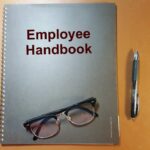The other day, I was having a discussion with an employee that worked for our county government. She was upset that her daughter was not considering going to college after she graduated high school. She believed that college was her daughters’ ticket to a successful career, and could not understand why her daughter didn’t think college was the right path.
For some professions such as physicians or lawyers, you must have a college degree to practice. Government employers including federal, state, county, and even city governments are also fixated on college credentials… even if they have no value for the applicant’s position. My friend’s perspective on the value of a college degree may have been based on her feeling of being trapped from further advancement in the workplace by her lack of a college education. While getting a college degree is right for certain occupations, I no longer agree that it should be considered the default path for everyone graduating high school.
Below is a video loosely based on my own personal experience that demonstrates just a few of the reasons why I do not think that going to college -especially straight out of high school- is the right answer for most people.
Below are a few of the points that I shared with my friend about her daughter’s decision to not go straight to college. Since many of my friends went to college and believed that it was worth the time and money for them, I’m sure my conclusions will likely upset them.
Growing up, my parents also encouraged me to attend college after high school, but just like my friend’s daughter, I knew college was not the best path for me.
The Decision
Typically, a person graduates from high school at age 18. What I find interesting is that at 18 years old, you are deemed to be too young to make choices about consuming libations such as alcohol or recreational marijuana, however, you are asked to make a decision about your lifelong vocation.
At that age, you know nothing about the real world and do not have a clue about potential career choices. How are these kids supposed to make a decision about their future careers when they have very little information?
A college education should be looked at like any investment and have a solid return on investment (ROI). The return is defined by the ability to access a large number of jobs that will overall provide higher earning power through a person’s working life once the degree is obtained, adjusted for the time value of money. Paying tens of thousands of dollars per year to earn a degree in Music or Asian Studies is not likely going to translate into the kind of job flexibility or earning power to justify the cost of that college education over a person’s lifetime.
Yet, many college-bound high school students are seduced into choosing a degree based not on what employers value and will pay for in terms of good wages, but by what the individual values and finds interesting. Unfortunately, the education that an individual values and what a business values are rarely in sync.
Career Visibility
I believe that without an opportunity to experience what it is like to live on their own, work a full-time job, or get a taste of potential careers and what it takes to work in them, going to college directly out of high school is bad advice for most kids. I feel it is far better for a young adult to try to live on their own and see what it takes to carve out a living before being asked to make such an important decision as to what career and college they want to pursue at the tender age of 18 with no real-life experience.
Debt and Savings
When you go to college directly out of high school, you are postponing the chance to earn real money and start building the nest egg you need to experiment with your ideas or pursue a passion project as an entrepreneur or a side hustle.
In addition to postponing earning any income while you attend college, you are incurring tons of student debt in the form of tuition, and for many, the additional cost of on-campus housing and meal plans. According to mycollegeguide.org, housing and meals exceed $8,800 per year for public schools and over $10,000 when it comes to private schools.
Moreover, at age 18, you are still too young to rent a car, but it is okay to make a decision that will put them many tens of thousands of dollars in debt that, according to Forbes, will take the average person 18.5 years after graduation to pay off.
Furthermore, while you can normally receive debt relief by filing bankruptcy, a student loan debt cannot be dismissed in the same way.
What makes matters even worse is that college-bound students are encouraged to do extracurricular activities that will look good on an admission letter rather than take on an after-school job while still in high school. College-bound students join debate teams, band, play sports, or become the editor for the school yearbook rather than experiencing the real world because it looks better on an application. This means these college-bound students do not get to experience how the real world operates.
In high school or in college, you never learn how to manage your personal finances, though getting a part-time job in high school or directly after high school gives you a small taste of what it is like to live on a budget.
Immediately after high school graduation, I forced my two boys to move out, get a job, and experience how the real-world operates for at least a few months.
In retrospect, my kids have shared how truly valuable the experiences of living on their own was in helping them grasp what it is like to be an adult with responsibilities. It may be the lack of understanding of what it really takes to survive in the real world that has caused so many young Americans to be more engaged in socially conscious movements as a college student, rather than trying to understand how real-world economics work.
Getting a job and learning to live on a budget teaches you valuable life skills, which they don’t teach you in school. Moreover, it can teach you financial discipline. When it comes to starting a business or even a side hustle to supplement your income while you gain new skills, you need to have the financial discipline to squirrel away a few dollars. Therefore, you must have your financial house in order first.
If you aren’t worried about paying your bills, you can create more time to focus on meaning in your life so you can eventually align your meaning with the ability to earn a living from it. As they say,
“Passion drives action.”
In contrast, by the time my friends finished college, they were getting married and some even started having kids. For many, it turned into a financial disaster that could have been avoided had they been more financially literate and had their financial house in order. As a result, it locked them into taking the perceived safer path of getting a job and giving full control of their future to the whims of their employers.
Connection Capital
A friend that went to Stanford once told me that the greatest benefit of going to a school like Stanford was the contacts that he made when he was in college. Unfortunately, the contacts he was talking about were other students. While these college contacts may someday prove valuable to your career, they too are all at the beginning of their careers, and will not have much value for creating career opportunities for many years.
By comparison, the contacts you make working in corporate America directly out of high school are most often career professionals that may have a more immediate impact on your career opportunities as you advance through a company or take on employment with other companies.
As a young person just starting out, I recommend getting a job first and then get to know your fellow coworkers in different departments. In this way, you can get a better understanding of the type of career opportunities there are and what others like and dislike about them before being forced to follow a career path. Furthermore, the contacts you make on the job will broaden your personal network and increase the likelihood of becoming aware of future opportunities.
The College Alternative
Many of my good friends in high school went directly to college after graduation. Once they graduated, most never worked in a career where their degree gave them a real leg up. One high school friend that went to college sells insurance now, while another drives a truck. A lot of good their four years in college did them. Moreover, they were not earning any money while they attended college and were supported by their parents.
After high school graduation, I made the part-time job I had with a computer company as a high school senior into a full-time job for a while. My employer sent me to several classes and workshops to develop my soft skills. Not only was I paid my wage to attend these classes, but my employer also paid tuition for the workshops.
When it came to more technical skills, my employer said they would pay the tuition for me to attend college if I chose. Of course, classes could not interfere with my day job, but I would not have racked up any tuition costs. All I had to do for the company to cover 100% of my tuition and books was to maintain a “B” or higher in each class.
Moreover, while I was employed with them, I not only participated in a stock purchase program that allowed me to buy the company’s stock at 80% of the traded stock price, but I also participated in their 401k program where they matched every dollar that I contributed one for one.
By the time my friends had graduated from college, I had accumulated quite a nest egg that came in handy when I started my first business a few years later. Had I attended college like my friends, I never would have had the opportunity to amass the seed money that allowed me to execute my first business.
Meanwhile, while my friend’s student loan balances and relatively immature credit history made them a bad credit risk for a lender, my credit history and savings gave me a leg up when it was time to scale my business and get a business loan.
How We Got Here
With the advent of the industrial revolution, workers left the fields and small shops to work for large corporations. Businesses had a need for trained employees and colleges filled their need to produce a skilled workforce.
Then came WW2. When America entered the war, many able-bodied teenagers and adults volunteered or were conscripted into the armed forces. Many soldiers, airmen, and sailors were thrust into situations that made them grow up real fast. After the war was over, Europe and Asia were in shambles supercharging manufacturing industries and changing their manpower requirements.
Many returning servicemen took advantage of the G.I. Bill to receive a free college education to fill these new manpower requirements. It made a lot of sense during this time and made it possible for America to prosper in the aftermath of the war.
Our love affair with college was now on the fast track. College as a means to increase one’s station in life entered the American zeitgeist after the war. To succeed in life, one needed a college education- even if you had to pay for it without the G.I Bill. However, things would soon change again.
Colleges prospered in an age of knowledge scarcity. However, the era of mass production manufacturing was replaced by the digital revolution, and access to knowledge was no longer the sole domain of colleges. The explosion of knowledge caused by the digital revolution reduced the half-life of a college education and ushered in the age of continuous learning. No longer was it practical to just front-end load your working life with a college education. No longer did you work in the same career field for your entire working life.
With the advent of the digital age, recorded knowledge grew exponentially. In many fields, the useful life of knowledge is now measured in months rather than years. According to Cathy Gonzalez in her 2004 paper on “The Role of Blended Learning in the World of Technology”,
“One of the most persuasive factors is the shrinking half-life of knowledge. The ‘half-life of knowledge’ is the time span from when knowledge is gained to when it becomes obsolete. Half of what is known today was not known 10 years ago. The amount of knowledge in the world has doubled in the past 10 years and is doubling every 18 months according to the American Society of Training and Documentation (ASTD). To combat the shrinking half-life of knowledge, organizations have been forced to develop new methods of deploying instruction.”
Cathy Gonzalez – The Role of Blended Learning in the World of Technology
Much of that knowledge lives in small niche pockets, never to be added to the mainstream college curriculums. As a result, much of the information currently being taught at colleges is already obsolete, while the rest of the content has already matured and is well on its way toward becoming obsolete. This leads to colleges becoming less competitive from a knowledge standpoint.
Are you still clinging to the old zeitgeist that a college education, especially right out of high school, is still the default path to prosperity? If you agree, let me know how you feel in the comments.












